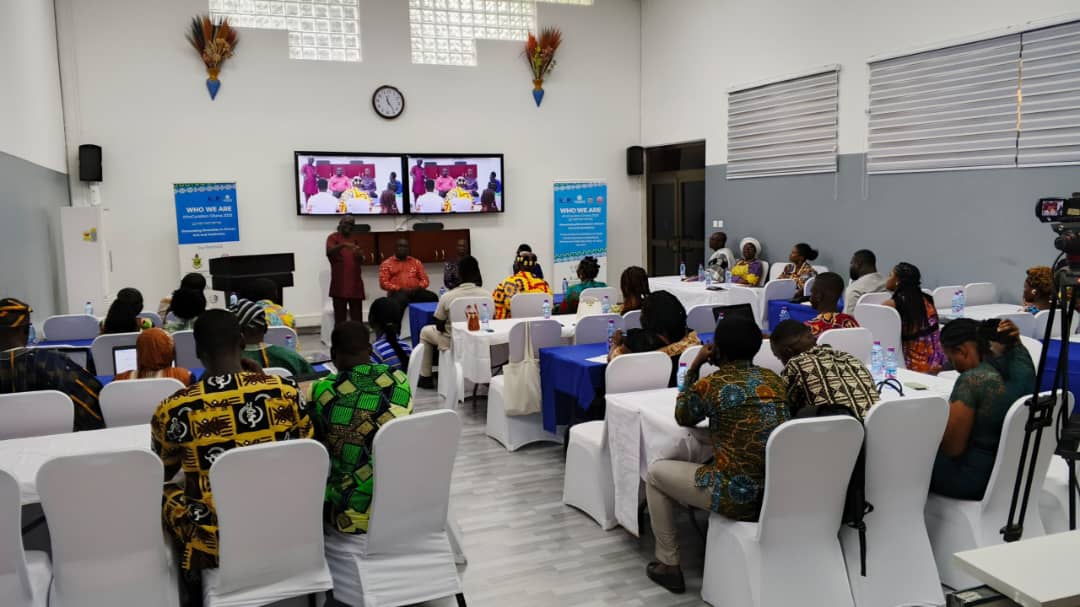AfroCuration Ghana 2025 unites 7 Ghanaian languages to promote African identity on Wikipedia – Nsemkeka
AfroCuration Ghana 2025 has brought together speakers of seven Ghanaian languages, along with academics, language experts, and digital activists, to promote and preserve African identities through Wikipedia.
Focusing on creating Wikipedia content in Twi, Dagbani, Gurene, Moore, Ewe, Kusaal, and Dagaare, the initiative aims to help bridge Africa’s digital divide.
More than 80 participants from across the country gathered to be trained in editing and translating articles about African artworks, artists, and cultural traditions. Writing in their native languages, they use reliable sources to ensure knowledge is accessible to diverse communities.
Held at Kwame Nkrumah University of Science and Technology (KNUST) in Kumasi, this major cultural and digital empowerment programme was organised by the Wikimedians of Twi Language, supported by the Global Open Initiative Foundation, and funded by the Wikimedia Foundation. It partnered with the Language and Communication Sciences Department at KNUST and the Akan/Nzema Education Department at the University of Education, Winneba (UEW), Ajumako Campus.
Top Ghanaian scholars and traditional leaders attended, including Professor Opanin Kofi Agyekum from the University of Ghana and Nana Krobea Sarfo-Asante, Development Chief of Asuoho Konkomah.
Other dignitaries present were Professor Charles Ofosu Marfo, Provost of the College of Humanities and Social Sciences at KNUST; Dr. Edward Adu-Manyah and Dr. Faleke Victoria Ogunnike from KNUST’s Department of Language and Communication Sciences; Professor Akwasi Adomako, Vice Dean of the Faculty of Ghanaian Languages and Education at UEW; and Dr. Patience Obeng, Head of Akan/Nzema Education at UEW, Ajumako.
Quality assurance for the published articles was led by senior lecturers Mr. Emmanuel Antwi Fordjour and Mr. Isaac Adjei Forson from KNUST, who worked closely with all seven language groups to ensure academic and linguistic standards were met.
Speaking at the gathering, Prof. Agyekum warned against preventing children from speaking their native languages, saying it violates their fundamental human rights.
“Once you prevent your child from speaking a local language, you’re trampling on the fundamental human right,” he said. “Every child is a potential multilingual. Why do you deny them from speaking their mother tongue?”
Project Lead for AfroCuration Ghana 2025, Jemima Antwi, stressed the importance of African representation online. She noted that many of the over 2,000 African languages are missing from the Internet, making Wikipedia a powerful tool for digital inclusion.
“We have over 2,000 African languages, yet our voices are missing on the Internet. While Swahili is making remarkable strides, other languages must rise too. Wikipedia is a powerful tool for digital inclusion, and we are here to change the narrative.”
Executive Director of the Global Open Initiative Foundation, Harriet Henry Bayel, there is an urgent need to document African languages online. She said Africans cannot allow their rich linguistic heritage to disappear while the world moves forward digitally. “AfroCuration gives us the space to take action,” she said.
Started by the Moleskine Foundation, AfroCuration is more than a program — it is a movement that combines art, language, heritage, and digital skills to equip young Africans with tools to protect and promote their cultures online.

